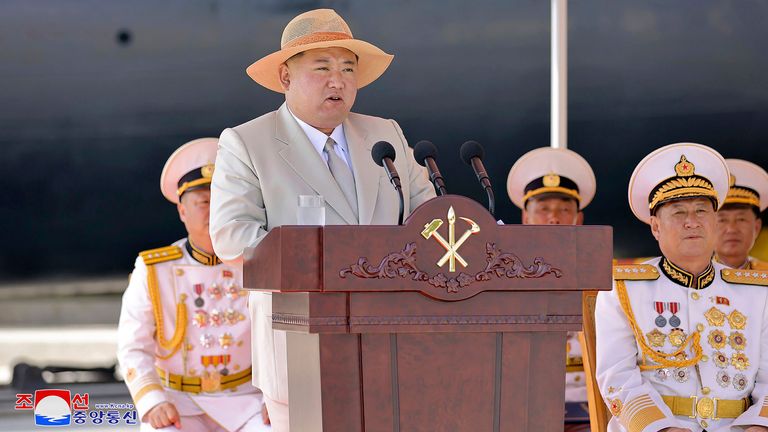Already a subscriber? Make sure to log into your account before viewing this content. You can access your account by hitting the “login” button on the top right corner. Still unable to see the content after signing in? Make sure your card on file is up-to-date.
The United States has rolled out new sanctions targeting a sophisticated transnational network of arms dealers that facilitated illegal weapons sales between North Korea and Myanmar’s military junta.
Getting into it: According to US officials, Myanmar-based company Royal Shune Lei played a central role in brokering covert arms deals between North Korea and Myanmar’s military regime, enabling the transfer of advanced weaponry in violation of international sanctions. The company arranged transactions for aerial bomb guidance kits, airborne surveillance equipment, and other munitions destined for the Burmese Air Force. These deals were coordinated through in-person meetings in China, where Royal Shune Lei representatives met with officials from Korea Mining Development Trading Corporation (KOMID), North Korea’s primary arms exporter. The US Treasury says this partnership helped funnel critical revenue back to Pyongyang to support its weapons of mass destruction (WMD) and ballistic missile programs.

Among those sanctioned are Tin Myo Aung, CEO of Royal Shune Lei, and Kyaw Thu Myo Myint, a company employee who helped facilitate arms negotiations and logistics with KOMID operatives. The two reportedly traveled to China multiple times in late 2023 to finalize deals, test military components, and arrange visas for a Burmese delegation to visit North Korea. Kim Yong Ju, KOMID’s deputy representative in Beijing, was also designated for his role in coordinating equipment samples and helping formalize the sales. US officials describe this as a sophisticated, multi-country operation designed to evade sanctions and obscure the financial trail behind the weapons transfers.
In a separate but related designation, US authorities sanctioned Nam Chol Ung, a North Korean intelligence officer affiliated with the Reconnaissance General Bureau (RGB). He allegedly oversaw a web of front companies in Laos and Thailand, including restaurants, resorts, and trading firms, which were used to launder foreign earnings for the regime. His network was also involved in smuggling North Korean-made tobacco products and arranging import contracts on behalf of Pyongyang. Officials say these businesses formed part of a long-running strategy to secretly fund North Korea’s intelligence and weapons development activities through seemingly legitimate commercial operations.
In a statement, Under Secretary for Terrorism and Financial Intelligence John K. Hurley said, “This is a calculated effort to choke off the financial and logistical support behind two destabilizing regimes. By going after the brokers, intermediaries, and shell companies that keep these networks running, we’re cutting into the lifeblood of North Korea’s illegal weapons programs and Myanmar’s military aggression.”







